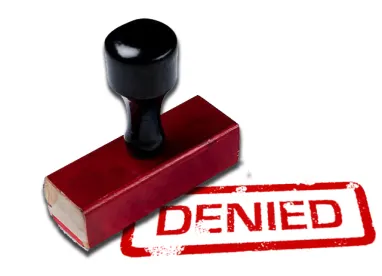Yesterday, the CFPB released the Winter 2019 edition of its Supervisory Highlights. The report discusses the Bureau’s examination findings in the areas of automobile loan servicing, deposits, mortgage loan servicing, and remittances. In this blog post, we focus on the Bureau’s findings relating to auto loan servicing. (We will discuss the Bureau’s other findings in a separate blog post.)
The auto loan servicing findings include a discussion of interest to auto finance companies, based on the now-familiar topic of ancillary products. Notably, however, the ancillary product issues identified concern refunds on such products when a consumer’s vehicle is repossessed or is declared a total loss. These observations underline not only the Bureau’s continued interest in ancillary product issues, but also its high degree of attention to repossession- and collection-related issues in auto finance, which have been present in numerous examinations over the past couple of years. The Bureau’s emphasis on ancillary product cancellation and refund issues also mirrors similar efforts by state regulators that we have observed.
The discussion in Supervisory Highlights mentions two practices that the Bureau found to be unfair or deceptive. First, the Bureau stated that “one or more servicers” had made errors in requesting refunds on extended service contracts purchased with used cars. In essence, the servicers allegedly had used the total mileage on the cars in calculating the refund amount, when the correct calculation should have been based on the miles driven by the consumer after purchase. The Bureau noted that this error reduced the amount of the refunds provided to consumers, which in turn increased their deficiency balances. According to the Bureau, the attempts made to collect these inflated balances were “unfair” under Dodd-Frank. The servicer(s) involved remediated the issues (although the type of remediation is unspecified), and began to “verify mileage calculations” on service contract refunds.
Our take on this issue is that it reflects a pattern we continue to see in CFPB examinations – that errors in operations – be they human or system errors – are still a fertile ground for UDAAP findings by the CFPB. And, as noted below, when those errors affect deficiency balances or collections, they Bureau will likely identify them as UDAAP violations.
The second issue discussed in Supervisory Highlights seems to be potentially more generally applicable. The Bureau noted that “one or more servicers” failed altogether to request refunds on ancillary products after repossession or total loss events. According to the CFPB, the servicers then sent deficiency balance notices to consumers, including a line item for “total credits/rebates.” The Bureau concluded that this deceived consumers, who interpreted the statements as including any available refunds from ancillary products, when in fact no refunds had been requested by the servicer. The Bureau went on to note that the servicer(s) involved “remediate[d] affected borrowers,” and “changed deficiency notices to clarify the status of eligible ancillary product rebates.”
On the one hand, this seems like a fairly obvious issue – auto finance companies should make an effort to request ancillary product refunds in the event of a total loss or repossession. But there are two very strange things about the CFPB’s discussion of this issue that will tend to confuse, rather than assist, auto finance companies. First, the Bureau notes this as purely a disclosure issue, arguing that the wording of the deficiency notices was misleading. Second, the going-forward solution was for the deficiency balance disclosure to be changed to “clarify the status” of refunds on ancillary products.
That’s easy for auto finance companies to do, but industry players will undoubtedly be asking the question, “what is the extent of my duty to request ancillary product refunds in these situations?” This is a significant operational question for auto finance companies, especially because many ancillary products are offered by dealers and administered by companies with which the finance company or bank has no relationship. The CFPB’s discussion of this issue seems to suggest that there is no duty to request a refund, and indeed there is no indication that the entity involved was required to actually request refunds. But we think that conclusion is probably a risky one to adopt, since we know that the Bureau (on other occasions) and state regulators have insisted that the finance company or bank does have such a duty. But, since the Bureau’s discussion is confined solely to disclosure issues, we don’t know what the scope of that duty is.
We also note that although the discussion of this issue in Supervisory Highlights concerned repossessions and total loss situations, it can also arise in the context of early payoffs, when a consumer has purchased a GAP waiver product. In our view, banks and auto finance companies should be equally sensitive to requesting refunds, calculating those refunds properly, and disclosing their status to consumers when an early payoff makes a GAP product no longer necessary for a consumer.



 />i
/>i

